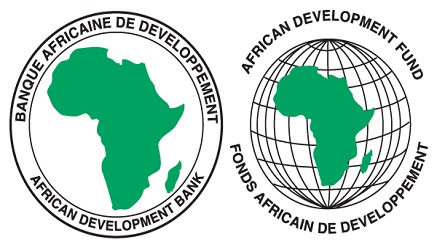E-Financial
AfDB Says its ICT Projects in 2015 Create Thousands of Jobs in Africa

The impacts arising from investments made by the African Development Bank Group in 2015 will collectively improve mobility of at least 1.2 million users of public transport, result in employment generation of about 200,000 jobs in the ITC sector and benefit almost 18 million people from improvements in road infrastructure.
These are the findings of the AfDB’s 2015 Annual Report on Transport and Information and communications technology (ICT) released July 1, 2016.
“The expected impacts over the next few years in integrating Africa, boosting agriculture, and facilitating industrialization will be tremendous,” noted Amadou Oumarou, AfDB director for the Transport and ICT Infrastructure.
The report sharply highlights the Bank’s continued support for the development of efficient transportation and telecommunication infrastructure to promote regional integration, support agriculture development, and facilitate the industrialization of Africa.
The publication underscores the Bank’s multi-faceted financing and advisory services in support of Africa’s development.
According to the report, the contribution of transport and ICT as enablers of economic development cannot be overstated. Efficient transport and ICT systems minimize transaction costs, transit times and uncertainties and can facilitate the participation of African countries in agriculture and manufacturing value chains.
In addition, transport contribute to improving livelihoods and inclusiveness by providing access to social services and job opportunities. Similarly, investment in ICT support spinoffs in information access, innovation, skills, and job creation.
During the course of 2015, the Bank invested in a total of 17 transport and ICT operations for a value of US $2 billion.
Lending was 50% above target mainly due to increased access by African Development Fund (ADF) countries to African Development Bank financing instruments and greater leverage of co-financing facilities such as the Africa Growing Together Fund (AGTF).
Roads and highway corridors represented the largest share of the lending. However, the portfolio is gradually being diversified with increased share of investments in other transport modes particularly urban transport, aviation and ports which collectively accounted for at least 30% of total lending.
Investments in regional transport infrastructure continued to feature strongly in the Bank lending, with regional highways linking Brazzaville (Congo) and Yaoundé (Cameroon), and Bamako (Mali) and the port of San Pedro (Côte d’Ivoire) as typical examples of cross-border corridors to promote regional integration and intra-African trade.
Additional support to regional integration included the financing of the Central Africa Fiber Optic backbone project and a US $12-million grant to support the Economic Community of Central African States and the Economic Community of West African States to improve regional air transport safety and security in West and Central Africa.
The financing of the Bus Rapid Transit Project in Tanzania re-affirmed the Bank’s involvement in developing sustainable cities and improving the quality of life of people.
The project will not only reduce urban congestion and increase mobility and accessibility for city-dwellers but also promote green growth and improve quality of health resulting from reduced emissions.
The US $127 million lending provided for the Nador West Med Port Project in Morocco and the $140-million Sharm El-Sheikh Airport Development project in Egypt strongly signalled Bank’s support for the continent’s industrialisation. The investments are expected to support growth of efficient global value chains and promote competiveness of the countries’ economies.
In support of agriculture, investments in the Tanzania Transport Support Program and Project to Rehabilitate the National Road N°2 and facilitate access to Morphil Island in Senegal aim to provide a catalytic effect in unlocking the agriculture potential of the regions.
The road improvements will support efficient movement of agriculture commodities and contribute to reduced post-harvest losses.
The year’s impressive lending added to the Bank’s growing active transport and ICT project portfolio. There are currently 114 transport and ICT projects under implementation in 44 countries valued at more than US $11 billion.
E-Financial
Nigeria Seeks to Raise $2.8Bn Including its First International Sukuk

Federal government plans to raise $2.8 billion in fresh funding as part of efforts to diversify its borrowing instruments and attract capital from global Islamic finance markets.

President Bola Tinubu asked the national assembly on October 7 to authorize $2.3 billion in new loans and a $500 million sovereign sukuk, marking what would be Nigeria’s first international sukuk issuance if approved.
“The objective is to make our borrowing more sustainable and cost-efficient,” Wale Edun, minister of Finance and Economy, said at an economic summit in Abuja, emphasizing a shift toward green bonds, diaspora bonds, and sukuk instead of traditional eurobonds.
According to Tinubu’s letter to lawmakers, the $2.3 billion borrowing will fund part of the 2025 fiscal deficit and refinance eurobonds that mature in November.
The government plans to mobilize the funds through multiple channels, including syndicated loans, eurobond sales, bridge financing via partner banks, or direct borrowing from international financial institutions.
The initiative aims to reduce Nigeria’s reliance on eurobonds while expanding its investor base to include Middle Eastern and Southeast Asian markets.
Nigeria has issued eight domestic sukuk bonds since 2017, all denominated in naira and targeted at the local market.
These Sharia-compliant instruments have financed road infrastructure projects and enjoyed strong demand — the latest, issued in May 2025, was seven times oversubscribed, according to Fitch Ratings.
The planned $500 million sukuk, denominated in U.S. dollars, would mark Nigeria’s debut in international Islamic debt markets.
Abuja aims to replicate the success of its domestic sukuk program abroad, potentially with support from the Islamic Corporation for the Insurance of Investment and Export Credit (ICIEC), a subsidiary of the Islamic Development Bank.
Nigeria’s Islamic finance industry reached $4 billion in assets by May 2025, according to Fitch.
Sukuk make up 54% of that total, followed by Islamic banking assets at 45%.
Despite rapid growth, non-interest banks still represent only 2% of Nigeria’s total banking assets, with five active institutions, including sector pioneer Jaiz Bank.
The Central Bank of Nigeria recently introduced new Islamic liquidity tools and raised capital requirements, measures expected to accelerate sector expansion in 2026.
“Nigeria has considerable potential for Islamic finance growth,” Fitch said, citing the country’s large Muslim population and significant unbanked demographic.
The proposed operation follows an upgrade of Nigeria’s sovereign rating by Fitch to ‘B’ in June 2025. The agency praised Tinubu’s reform agenda, which includes fuel subsidy removal, exchange rate unification, and fiscal restructuring, all of which improved fiscal credibility.
Nigeria returned to international capital markets in late 2024 after a nearly three-year hiatus and now seeks to consolidate its presence as a sovereign issuer while diversifying funding sources.
The global sukuk market has shown robust growth this year. Fitch projects outstanding sukuk to surpass $1 trillion by the end of 2025, while S&P Global Ratings forecasts $190–200 billion in new issuances.
Africa, however, accounts for only 2% of the global sukuk market, underscoring Nigeria’s potential to position itself as a regional leader in Islamic finance.
E-Financial
Beware of AfriQuantumX Ponzi Scheme- SEC

Securities and Exchange Commission (SEC) has named AfriQuatum, with a claimed worth of N76 billion, as a Ponzi scheme.

The regulator also urged the public to be cautious about investing with the firm.
SEC disclosed this in a recent statement.
According to the SEC, any person who places an investment or engages with the entity does so at his or her own risk, adding that its operations exhibit characteristics commonly associated with fraudulent Ponzi schemes.
“The attention of the Securities and Exchange Commission has been drawn to the activities of AfriQuantumX, which holds itself out as an investment platform trading on and selling cryptocurrency and stocks to investors in Nigeria.
“The Commission hereby informs the public that AfriQuantumX is not registered by the Commission either to solicit investments from the public or operate in any capacity within the Nigerian capital market,” SEC stated.
E-Financial
CBN Makes case for Open Banking Policy @ Nigeria Fintech Week

Mr. Olayemi Cardoso, Governor of the Central Bank of Nigeria, CBN, has said that policies such as open banking when operational will foster new opportunities for collaboration, ensuring customers benefit from competitive, tailored services by balancing innovation.

Open banking is a system that allows customers to securely share their financial data with authorized third-party providers (TPPs) through APIs (Application Programming Interfaces), enabling them to access innovative financial products and services like consolidated account dashboards, personal finance management tools, and more convenient payment methods.
Mr. Cardoso, disclosed this while speaking during the opening ceremony of the Nigeria Fintech Week 2025 in Lagos.
Cardoso, who was represented by Opemi Yusuf, the Director of Payment System Supervision at the apex bank, said that as Nigerian advances towards a cashless economy, the foundation of progress must remain trust in our payment system. Innovation loses its meaning if consumers are not confident in the safety of their money or the protection of their data.
“Initiatives such as Agent banking and microfinance expansion targets the grassroots community solution like mobile wallets and USSD services lowering barriers, but technology alone cannot close it, we must combine innovation with collaboration across government, industry and communities to build trust, improve literacy and extend financial services to rural and underserved areas. Our collective commitment must be that no regional community is left out of the Digital transformation”.
“Over the last year, we have seen strong adoption of digital channels with total electronic payments reaching over 3.9 billion transactions valued at N280 trillion in August 2024 compared to the growth of 4.12 billion transactions valued at N384 trillion by July 2025,” he stated.
The CBN Governor added that the apex bank continues to work closely with the Nigeria Electronic Fraud Forum and law enforcement agencies to combat digital crime and protect consumers.
“By balancing innovation with prudent oversight, we allow new technologies to flourish while protecting consumers and the broader financial system. A symphony is incomplete if some instruments are silent,” he said in reference to the theme of the forum.
In his opening address at the event, President of the Fintech Association of Nigeria (FintechNGR), Dr. Stanley Jacob, described this year’s theme, “The FinTech Ecosystem Symphony: Orchestrating Nigeria’s Digital Future”, — as a call to collective action.
“This is not merely an event; it has become a statement of intent,” Jacob said, urging participants to seize the opportunity to forge partnerships and make impactful deals that will shape the sector’s future.
Also speaking, Vice President of the Association and Chair of the 2025 NFW, Dr Jameelah Sharrief-Ayedun, noted that for the first time, besides having diverse sector participation, the NFW is happening concurrently in more than one city.
According to her, beyond Lagos, the event is also holding in Abuja, Delta and Enugu at the same time.

 Telecom2 days ago
Telecom2 days agoAkwa Ibom, T2 Set to Drive Digital Transformation

 E-Business2 days ago
E-Business2 days agoKaspersky, Partners Launch a Career Orientation Test to Inspire more Girls into Cybersecurity

 E-Financial2 days ago
E-Financial2 days agoAfDB to Lend Nigeria $500m in Fresh Budget Support

 Telecom1 day ago
Telecom1 day agoChronicles Software unveils free SuccessBOX.ng platform for SS3 students, announces ₦10m reward scheme

 Telecom2 days ago
Telecom2 days agontel Gets Fresh Capital Injection for 2026 Relaunch

 E-Financial2 days ago
E-Financial2 days agoCBN Releases New Guidelines, Caps POS Agent Daily Transactions at N1.2m

 E-Financial2 days ago
E-Financial2 days agoFidelity Bank Hosts Black-Tie Gala Honouring Afreximbank President Prof. Benedict Oramah

 E-Financial2 days ago
E-Financial2 days agoReps Plan to Regulate Cryptocurrency, PoS Operations















